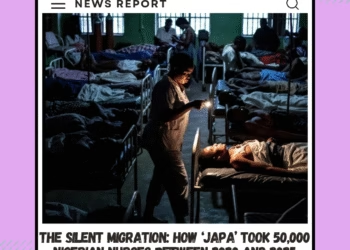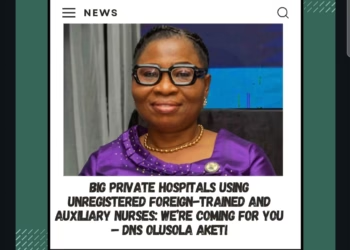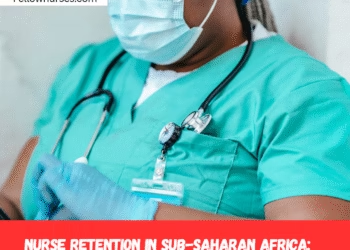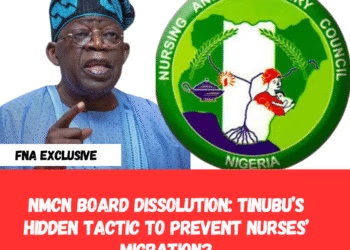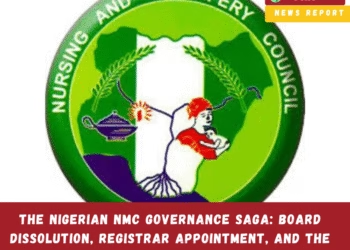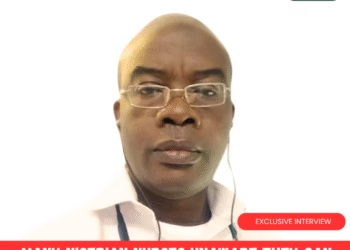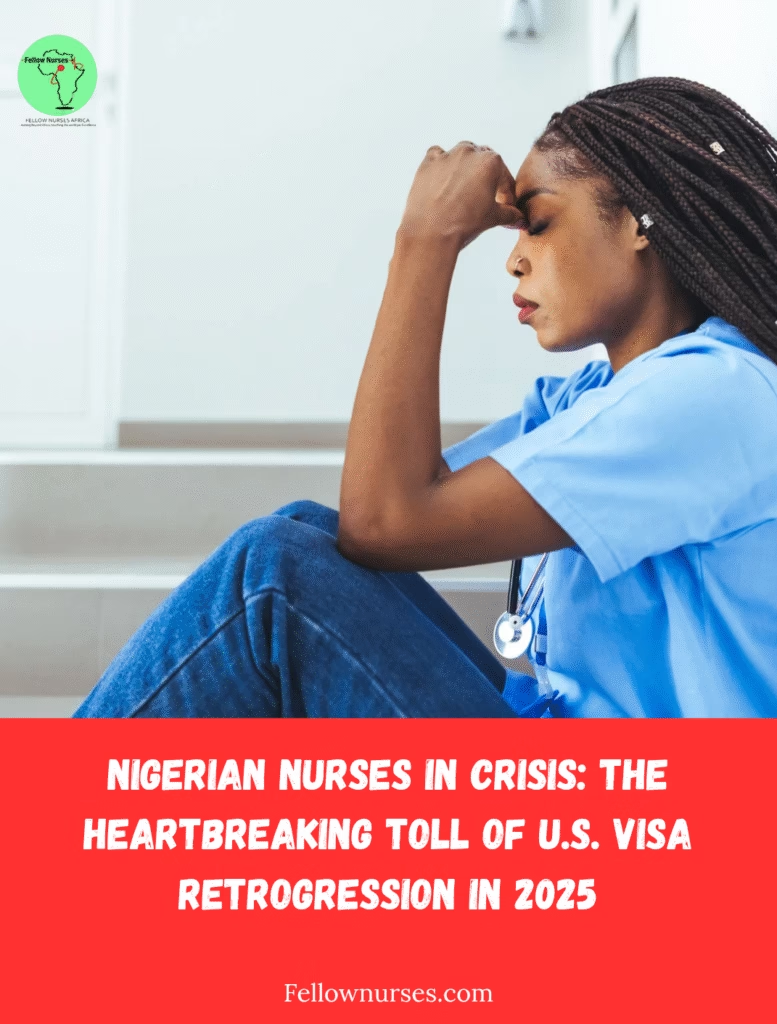
Nigerian Nurses in Crisis: The Heartbreaking Toll of U.S. Visa Retrogression in 2025
By Fellow Nurses Africa Correspondent, August 17, 2025
In Nigeria’s overcrowded hospital wards, nurses are the heartbeat of care, weaving resilience through grueling shifts and scarce resources. For thousands, the dream of a U.S. nursing career—forged by passing the NCLEX and securing job offers—promises professional growth and financial stability. Yet, in 2025, U.S. visa retrogression has cast a shadow over these aspirations, leaving Nigerian nurses trapped in a state of anguished uncertainty. From those who left stable jobs in Nigeria to UK-based nurses (UKRNs) who planned to transition to the U.S., the human toll is profound—savings drained, dreams deferred, and lives paused in a bureaucratic quagmire.
The Retrogression Barrier: Dreams Deferred
Visa retrogression, triggered when demand for U.S. employment-based (EB-3) visas exceeds the annual cap of 140,000, with a 7% per-country limit, creates significant backlogs for high-demand nations like Nigeria. The U.S. Department of State’s August 2025 Visa Bulletin sets Nigeria’s EB-3 final action date at April 1, 2023, delaying nurses with later priority dates by months or years. Industry estimates indicate over 10,000 foreign nurses, including thousands from Nigeria, are ensnared, exacerbating a U.S. healthcare shortage projected to reach 800,000 by 2030.
In Nigeria, the impact is crushing. Nurses who resigned from high-paying private hospital roles, earning ₦300,000–₦500,000 ($180–$300) monthly, now scrape by on meager incomes. “I left my senior nursing position in Lagos after passing the NCLEX and securing a U.S. hospital contract,” says Amara Okonkwo, 31, from Anambra. “Now, I teach IELTS and NCLEX prep for ₦50,000 ($30) a month. My daughter’s school fees are unpaid, and I feel like I’m letting her down.” Amara spent $3,000 on NCLEX preparation and visa fees, a sacrifice that now haunts her. “Some nights, I lie awake, wondering if I’ve lost my way,” she shares, her voice heavy with emotion.
UKRNs: Caught in a Web of Uncertainty
Nigerian nurses in the UK, leveraging the Health and Care Worker Visa as a stepping stone to the U.S., face unique heartaches. Many UKRNs, seeking to bypass Nigeria’s challenges, made choices that jeopardized their Indefinite Leave to Remain (ILR) eligibility. Some switched from the Health and Care Visa to dependent visas, anticipating a swift U.S. transition. “I moved to a dependent visa, thinking my U.S. dream was within reach,” says Chioma Eke, 34, from Enugu. “Now, with my priority date at July 2023, my ILR path is disrupted, and I’m stuck.” Others worked beyond the permitted 20 hours per week on restricted visas, risking immigration penalties, believing they wouldn’t need ILR for a U.S. future. “I took extra shifts to save for my move,” says Kemi Adeyemi, 29, in Birmingham. “Now, I’m under scrutiny for overworking, and retrogression keeps me here. I feel betrayed by my own plans.”
Even UKRNs who preserved ILR eligibility face paralyzing indecision. Life-altering decisions—buying a home, investing in a business, or starting a family—hang in the balance. “I’ve saved for a house deposit,” says Nneka Ojo, 32, in Manchester. “But if my U.S. visa comes through, I’ll leave. If I commit to a mortgage here, I risk being tied down. I’m torn.” Nneka’s eyes well up as she describes the weight of uncertainty. An estimated 25% of Nigerian UKRNs have deferred major decisions due to retrogression, per UK nursing agencies.
Nigeria’s Verification Hurdle: A Stinging Setback
In Nigeria, the Nursing and Midwifery Council (NMCN) has deepened the crisis. From December 2023 to March 2025, the NMCN portal—crucial for license verification required for U.S. licensure—was closed, halting thousands of applications. A Nursing Group Administrator sued the NMCN, arguing the closure violated professional mobility rights. The portal reopened in March 2025, but a new mandate requires nurses to work in Nigeria for two years post-qualification before verification eligibility—a policy critics say shackles talent in a country with a nurse density of 1.5 per 1,000, far below global standards. “I’ve worked 18 months in a public hospital,” says Tunde Alabi, 27, from Ondo. “I need six more months for verification, but my U.S. job offer is at risk. It feels like my country is holding me back.” Tunde’s frustration mirrors that of many, caught between ambition and systemic barriers.
This policy fuels Nigeria’s brain drain, with hospitals grappling with nurse-to-patient ratios as high as 1:50. “We’re losing our best nurses, yet we’re imposing rules that stifle their global contributions,” says a Lagos hospital matron, speaking anonymously.
|*Key Statistics on Nurse Migration and Retrogression Impact (2024-2025)
| Metric | Data | Explanation |
|---|---|---|
| Annual EB-3 Visa Cap | 140,000 worldwide | The U.S. issues 140,000 EB-3 visas annually for skilled workers, including nurses, causing backlogs for high-demand countries like Nigeria. |
| Per-Country Limit | 7% (~9,800 for Nigeria) | Nigeria is capped at ~9,800 EB-3 visas, creating delays due to high application volumes. |
| EB-3 Final Action Date (Nigeria) | April 1, 2023 (August 17, 2025) | As of August 17, 2025, only nurses with priority dates before April 1, 2023, can process visas, per the August 2025 Visa Bulletin, delaying others significantly. |
| Affected Nigerian Nurses | ~3,000–5,000 (2024-2025) | An estimated 3,000–5,000 Nigerian nurses face delays, impacting their finances and plans after resigning or investing in NCLEX as of August 2025. |
| Financial Investment per Nurse | $1,500–$4,000 | Nurses spend $1,500–$4,000 on NCLEX prep, credential evaluations, and visa fees, often losing savings due to retrogression delays in 2025. |
| NMCN Verification Delays | ~5,000 nurses (Dec 2023–Mar 2025) | The NMCN portal closure stalled ~5,000 nurses’ U.S. licensure processes; the two-year work rule continues to restrict mobility in 2025. |
| U.S. Nurse Shortage Projection | 800,000 by 2030 | Retrogression worsens the U.S. healthcare shortage, delaying critical nurse contributions as of August 2025. |
| Nigerian Nurse Density | 1.7 per 1,000 population | Nigeria’s nurse density (2023 WHO estimate) remains below the global average (4 per 1,000), worsened by migration barriers like NMCN rules. |
A Global Healthcare Crisis
The U.S. relies on foreign nurses, who make up 15–18% of its nursing workforce, to address critical staffing shortages. Retrogression disrupts this pipeline, forcing hospitals in regions like rural Ohio to ration care or hire travel nurses at triple the standard $39 hourly wage. “Without international nurses, our healthcare system faces collapse,” warns Sarah Collins, a U.S. hospital recruiter. In Nigeria, the loss of nurses strains an already fragile system, leaving patients in overcrowded wards with diminishing care.
Resilience Amid Heartache
Despite the pain, Nigerian nurses embody extraordinary resilience. Decency Onyekachi, CEO of Decency NCLEX Academy, offers a beacon of hope: “This delay is not your defeat. Use this time to pursue certifications like ACLS or specialize in critical care. Your skills are your strength, and your dreams are still within reach. Keep pushing forward—you are not alone.” His words resonate with nurses like Amara, who find solace in online communities. “We share our struggles and lift each other up,” Amara says, a faint smile breaking through her exhaustion. “This community keeps me going.” Some explore alternatives like Canada’s Express Entry, despite its competitive points system.
For Amara, Chioma, and countless others, hope endures. “I see myself in a U.S. hospital, saving lives with the best tools,” Amara says, her voice steady despite the strain. “This setback hurts, but it won’t break me.” Advocacy groups push for U.S. reforms, such as recapturing unused EB-3 visas, and urge Nigeria to ease verification rules. Until change comes, these nurses—caregivers, parents, dreamers—persevere, their courage a testament to their unwavering spirit.
Fellow Nurses Africa is the independent voice of African nursing, we educate, support and inform the nursing profession.
Contact Fellow Nurses Africa to share your story or find support: info@fellownurses.com

